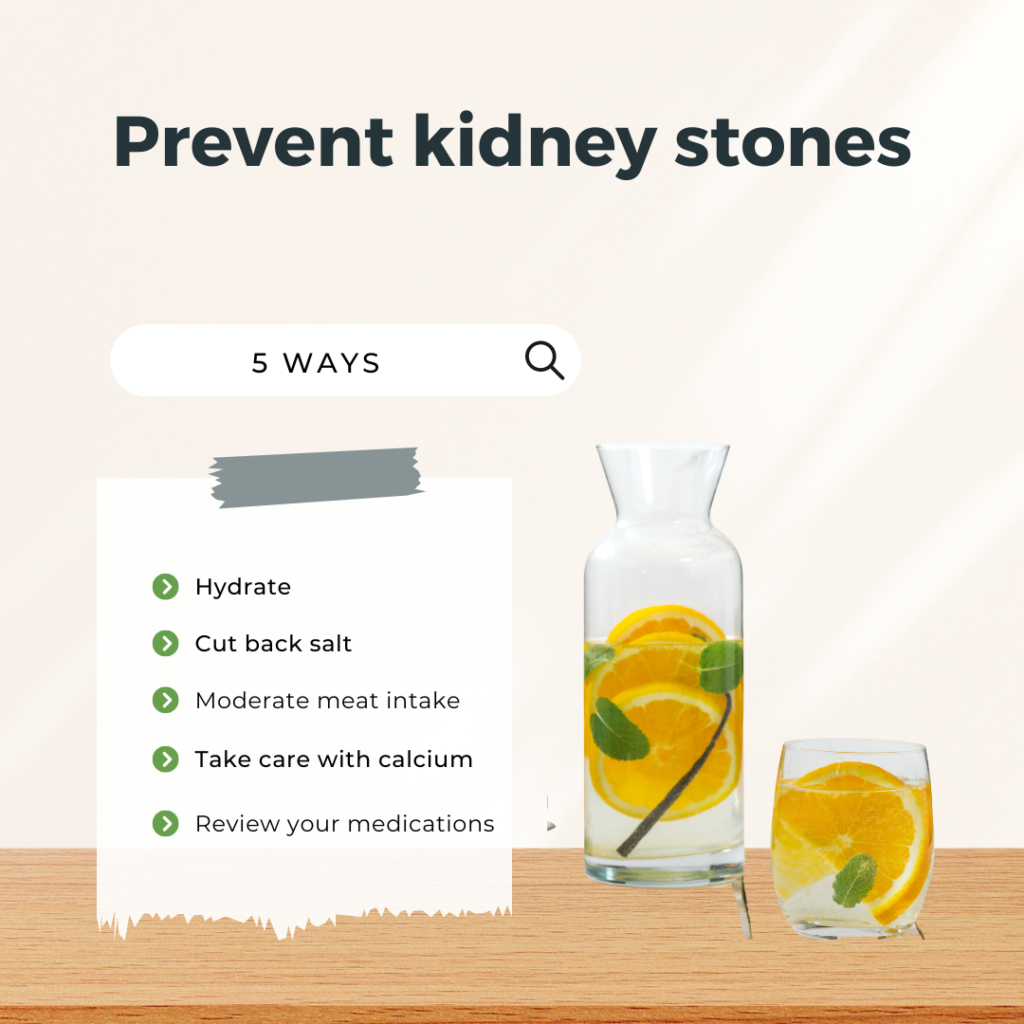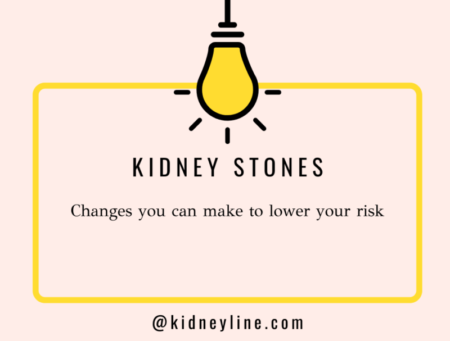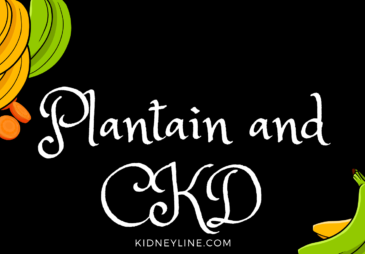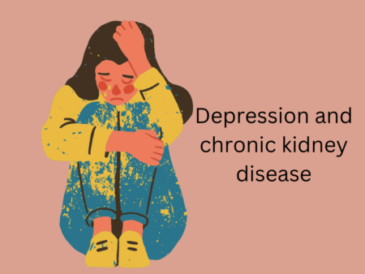Kidney stones are pebble-like mineral deposits that form in the kidneys. They are painless when they are in the kidneys, but when they pass into the urinary tract or block the outflow of urine, they may cause severe pain. Anyone who has suffered the pain of kidney stones would prefer to prevent kidney stones than have a repeat experience.
The truth is if you have had a kidney stone, you have a higher risk of forming another kidney stone. If you also have a family history of kidney stones, you also have a higher risk of forming kidney stones. So, if you would like to learn how to prevent kidney stones, keep reading.
Hydration
This is one of the easiest ways to lower your risk of kidney stones. Because kidney stones form when the concentration of certain minerals like calcium and uric acid rise in the kidneys, drinking enough water to keep your urine dilute helps.
But it’s not enough to just say you will drink more water, it is important for you to implement steps to ensure you keep hydrated. You may choose to take water at regular intervals. One such regimen is to drink a glass of water once you wake and every two hours thereafter. You may choose to drink a glass of water before and after each meal and also at bedtime. Having a plan keeps you accountable
If you are having trouble drinking plain water, you can squeeze in a dash of lemon juice. The AAFP suggests mixing one cup of lemon juice or lime juice with 7 cups of water. You can also try citrus-infused water. Here’s how to make your own citrus-infused water. Slice up different citrus fruits and pour them into a pitcher or wide-mouth bottle. Fill the pitcher or bottle with water and drink. You can do this with all kinds of fruits. Cucumber is a popular alternative.
Sometimes you may think you are taking enough water when you aren’t. A way to tell you are drinking enough water is that you are frequently urinating and that your urine is clear. You should also drink enough water to ensure that you wake up at night to pee.
Fruit juice is another great way to increase your fluid intake. But you have to be careful so that you don’t increase your calorie intake so much as to lead to weight gain. Furthermore, even though grapefruit, orange and lemon juice have been shown to increase urinary citrate, orange juice and grapefruit juice may also increase urinary oxalate levels.
Take enough calcium but not too much
Although calcium stones are the commonest type of kidney stones, do not be tempted to cut back your calcium intake. In fact, a low calcium intake increases the risk of another kind of stone (oxalate stones) if you are vulnerable. This is because calcium binds to oxalate in the gut. When calcium is low, more oxalate gets reabsorbed into the bloodstream from the gut, and this gets to the kidney. Most people would recommend that you take calcium-containing foods when eating foods rich in oxalate since calcium binds oxalate in the gut. Dairy products, leafy greens, beans and peas are great sources of calcium.
Although a low calcium intake is not advocated, you should also not take excess calcium. With the increasing popularity of supplements, more and more people are taking in excess amounts of calcium. The intestines absorb calcium more efficiently from supplements when these supplements are not taken with food. One study involving 36,282 post-menopausal women demonstrated a 17% higher risk of urinary stones in those who received daily supplementation of calcium and vitamin D.

Cut back on sodium
Studies have shown that increased intake of sodium increases the amount of calcium in your urine. This increase in urine calcium following a high salt diet is two times higher among those who have previously had a calcium stone compared to those with no history of calcium stones. As such, experts recommend a low-salt diet as a way to prevent kidney stones.
Canned foods, processed meat, salted dried meat and stock fish are notorious for having a high sodium content. Be careful when including them in your meals. It is important to learn to read labels when embarking on a low-salt diet.
The truth is the most effective way to control your salt consumption is to cook from scratch and regulate the amount of salt you use in cooking. Another simple strategy is to avoid adding salt to meals on the table.
Watch your meat consumption
All forms of meat whether red meat or poultry are rich in uric acid. Fish and eggs also increase uric acid levels. In one study, consuming meat, fish or chicken increased uric acid in urine. Acidic urine makes it easy for uric acid stones and cystine stones to form.
Meat also reduces the amount of citrate in urine. Citrate helps to decrease urine acidity and prevent the formation of urine stones.
By increasing urine uric acid and reducing urine citrate levels, excess consumption of animal protein can increase your risk of developing kidney stones.
This does not mean you should eliminate fish and meat completely from your diet. You just have to take them in moderation.
Watch out for other foods that promote stone formation
Beans, spinach, nuts and chocolate contain oxalate, so you may want to be careful with them.
It’s also important to have your doctor take a close look at your medications. Why? Because some medications for other medical conditions may promote stone formation. In such a situation, your doctor may opt to prescribe an alternate medication. But if it is absolutely necessary for you to remain on the medication, your doctor may institute measures to help lower your risk for kidney stones.
Summary
Kidney stones are sometimes a source of intense pain. They also carry a risk of kidney damage. Although certain unmodifiable factors may put you at risk for kidney stones, there are still measures you can take to prevent kidney stones.




1 Comment
[…] ways to prevent kidney stones […]